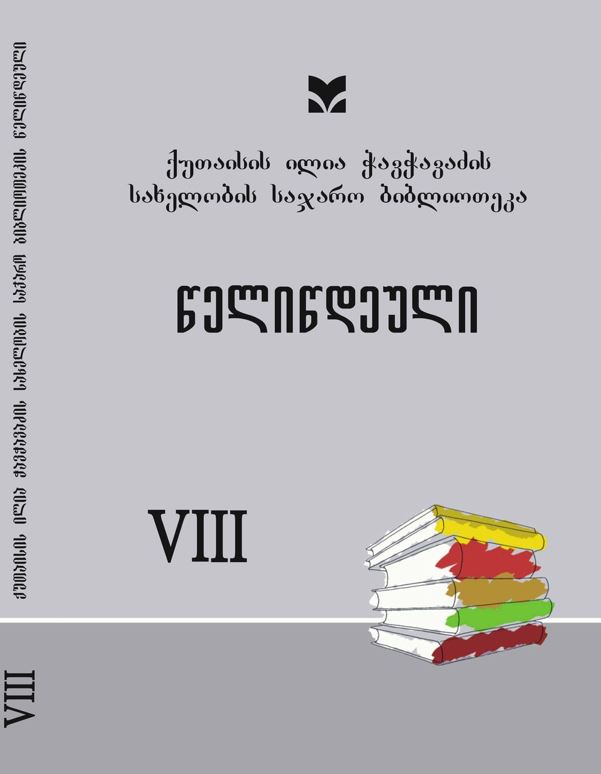The Issue Of Mengrelian On The Papers Of “Droeba”
Abstract
In the first half of the 19th century Russia aimed to devastate Georgian identity as well as dividing Georgian territory into parts, that’s why they attacked to linguistic wholeness of Georgians. Special attention was given to Samegrelo. The issue of Samegrelo became very active from 80s of 19th century. The aim of Tsarism officials were the following: 1. Alienation of people from Samegrelo to other Georgians; 2. Declaring Mengrelian dialect as a language; 3. Accordingly banishing Georgian literary language from the schools of Samegrelo and replacing it by Mengrelian dialect.
Appointed issues attracted a huge attention of 19th Georgian century press, especially the newspaper “Droeba”, issuing in the years of 1866-1885.
The newspaper “droeba” gave the tribune to the active dispute about the qualification of Mengrelian dialect. Almost all the numbers published answer letters by numerous public men with nick names “Megreli”, “Kortokha”, “Foti” and many others. Georgian society, scientists and linguists, writers and ordinary citizens didn’t consider Mengrelian as an independent and complete language, and any time the dispute was raised about this issues, they emphasized the priority of Georgian as a one and only language with old literary value. Georgian language in their opinion has the same degree of nativeness to Mengrelians as to people from Imereti, Kakheti, Guria, and any Georgian.
Society of that time was split into two, One side was insisting that Mengrelian is an independent language and has nothing to do with Georgian, second side were resisting this idea with concrete arguments and asserted that Mengrelian is a Georgian language, just it’s a different version. Progressive part of the newspaper “Droeba” G. Tsereteli, S. Meskhi, Kirile Lortkipanidze, Ilia Tchavtchavadze and Ivane Machabeli held the right position and defended the idea of united Georgia, they openly expressed their ideas and resisted censorship. This dispute and linguistic split in two parts es still alive and polemics about the matter of Kartvelian linguistic units and their qualification still exists as unresolved problem.




